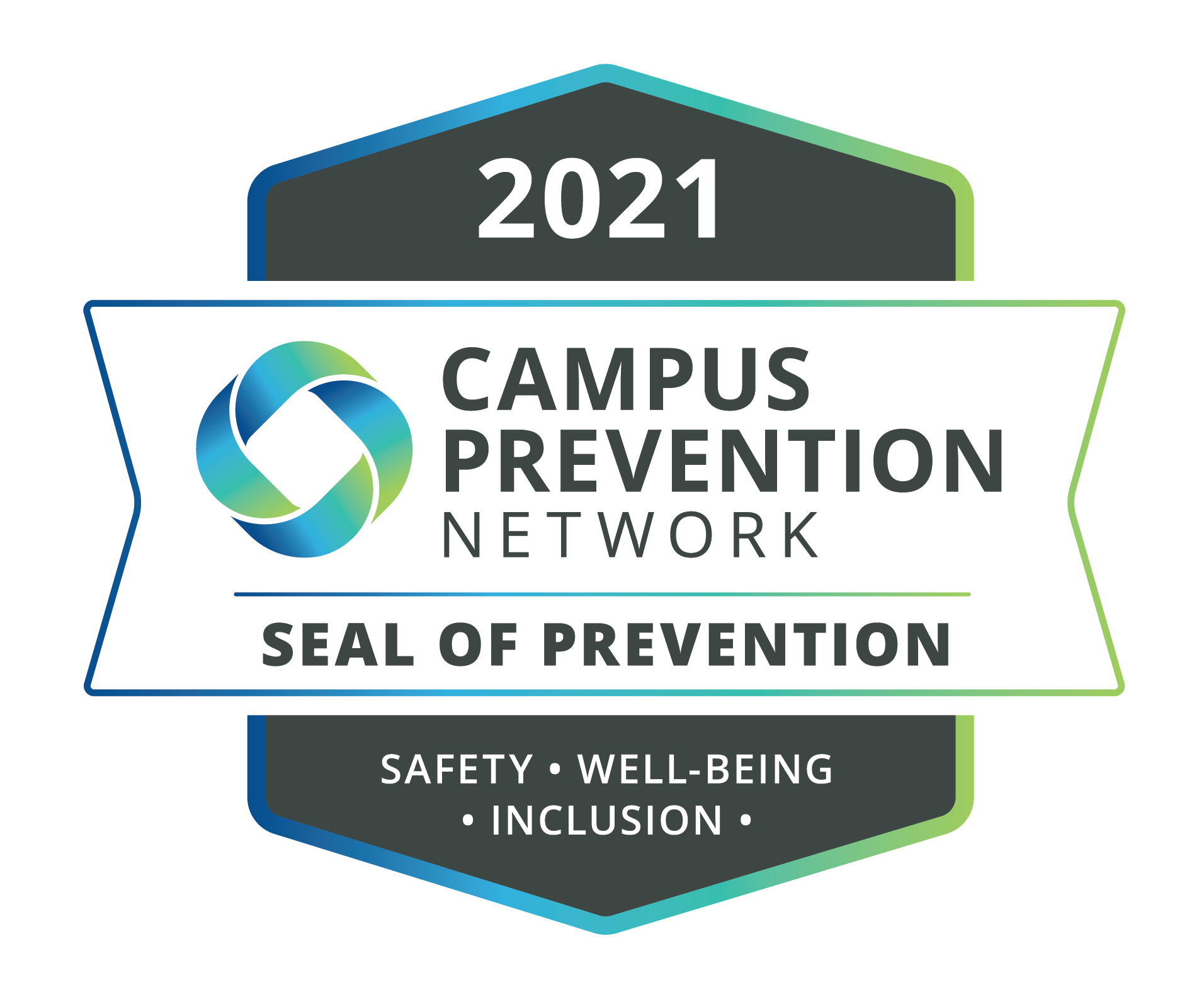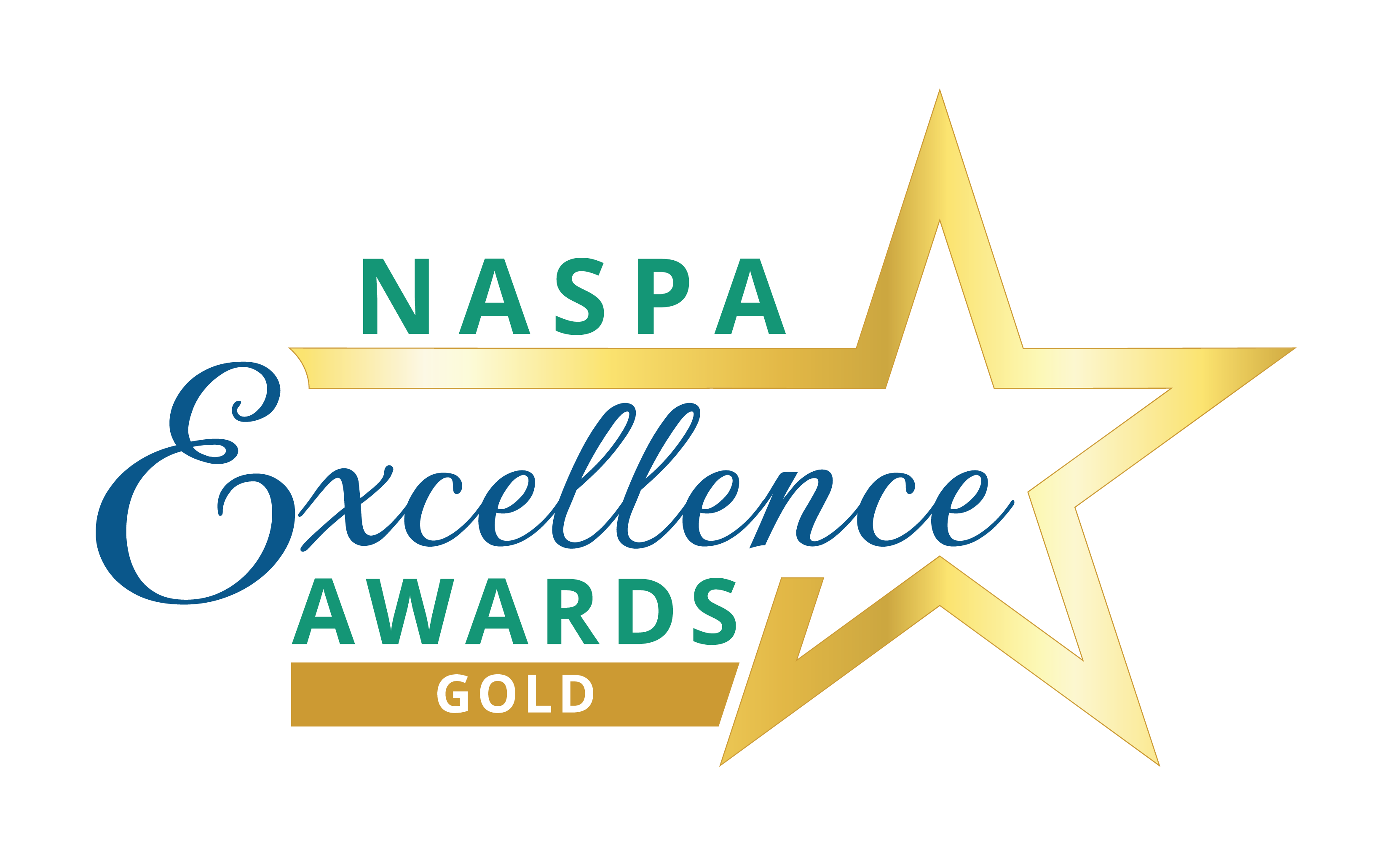Preventing Sexual Misconduct on Campus
In fall 2017, Utah State University implemented a comprehensive sexual misconduct prevention strategy, which was recommended by the university's sexual violence Prevention, Education, and Training Working Group. With this strategy, we seek to prevent all forms of sexual misconduct as well as help victims feel more comfortable coming forward to report their experiences. The strategy is reviewed on an annual basis by the university’s Implementation and Coordinating Committee, and progress is regularly assessed by the Office of Equity Prevention Specialists and USU Title IX Coordinator.
USU has been recognized as a “2021 Campus Prevention Network Seal of Prevention” recipient, which is a designation given to institutions committed to comprehensive, evidence-based digital prevention strategies on issues of wellness, safety, and inclusion.
Mandatory Student Sexual Misconduct Prevention Training
As part of our comprehensive health and safety program, USU requires all students who are enrolled in a non-certificate degree-granting program for 6 credit hours or more per semester to participate in a sexual misconduct prevention training each academic year. These trainings will empower students to make informed decisions about issues that affect our USU community.
Incoming and continuing students who do not complete their assigned sexual misconduct prevention training by the start of the registration period have a hold placed on their accounts, which prevents them from registering for future semesters. USU had previously offered the online sexual misconduct prevention course to incoming students on an optional basis, but adding a "hard mandate" has driven course completion by students up to near 100 percent each semester.
Learn more about USU's student sexual misconduct prevention trainings.
Incoming Students
All first-year and transfer undergraduate and graduate students, as well as students returning from a leave of absence, are required to complete a sexual misconduct prevention training in the first few months of their first semester at USU. This training addresses sexual misconduct behaviors along with information about bystander intervention strategies, healthy relationships, and support resources and reporting options.
Starting in fall 2020, residential campus incoming students will be required to participate in a "live" version of the sexual misconduct prevention training, facilitated either in-person or via Zoom.
From fall 2017 to spring 2023, 49,338 incoming students have completed a sexual misconduct prevention training.
Continuing Students
Starting in fall 2021, all continuing students will be required to participate in an online refresher course each academic year. The refresher courses build on content that was covered in the incoming student trainings and each course addresses different components of sexual misconduct.
From fall 2021 to spring 2023, 29,345 continuing students completed an online sexual misconduct prevention refresher course.
Student Group Members
The following student groups are required to participate in additional sexual misconduct prevention and bystander intervention training each academic year: leaders of student organizations, members of fraternities and sororities, and student-athletes. Fraternity and sorority members and student-athletes participate in one training provided by the Office of Equity and one training provided by the Sexual Assault and Anti-Violence Information office (SAAVI) each year.
Fraternity and Sorority Members
The annual sexual misconduct prevention training for fraternity and sorority members is modified to include scenarios that are specific to the fraternity and sorority community.
From fall 2017 to spring 2023, 2,808 fraternity and sorority members participated in an additional training.
Student-Athletes
The annual sexual misconduct prevention training for student-athletes is modified to include scenarios that are specific to the Athletics community.
From fall 2017 to spring 2023, 3,188 student-athletes participated in an additional training.
Student Organization Leaders
The annual sexual misconduct prevention training for student organization leaders is modified to include scenarios that are specific to the student organization community.
From fall 2017 to spring 2023, 2,177 student organization members and leaders participated in an additional training.
Employee Sexual Misconduct Prevention and Response Training
Starting in fall 2021, most employees will be required to participate in a "live" sexual misconduct training each year, facilitated either in-person or via Zoom. The training's content and format is specific to the employee's designation as a Designated Confidential Resource, Reporting Employee, or Non-Designated Employee. USU employees had previously been required to participate in a training (online course or "live") as a new employee and then again every three years.
Learn more about USU's employee sexual misconduct trainings.
From fall 2021 to spring 2023, 14,481 employees completed a sexual misconduct training.
Athletics Employee Training
The annual "live" sexual misconduct training for Athletics employees is modified to include scenarios that are specific to student-athletes and the Athletics community. Athletics employees also regularly participate in a training about trauma-informed practices, supporting victims/survivors, sexual misconduct myths, false reporting, and victim blaming provided by the Office of Equity and SAAVI.
From fall 2017 to spring 2023, 657 Athletics employees completed a sexual misconduct training.
Residence Life Employee Training
The annual "live" sexual misconduct training for Residence Life employees is modified to include scenarios that are specific to on-campus residents and the campus housing community.
From fall 2017 to spring 2023, 1,160 Residence Life employees completed a sexual misconduct training.
USU Police Department Employee Training
The annual "live" sexual misconduct training for USU Police Department employees is modified to include scenarios that are specific to law enforcement interactions with students and employees. USUPD employees also regularly participate in a training about trauma-informed practices, supporting victims/survivors, sexual misconduct myths, false reporting, and victim blaming provided by the Office of Equity and SAAVI. USUPD officers who respond to or investigate allegations of sexual misconduct are required to receive annual training in evidence-based trauma-informed investigative techniques.
From fall 2017 to spring 2023, 262 USUPD employees completed a sexual misconduct training.
Additional Employee Trainings
The Office of Equity and SAAVI provide various additional sexual misconduct-related trainings to employees each year that are designed to build skills to prevent sexual misconduct. These trainings address topics such as boundary setting, conflict management, and power dynamics.
From fall 2018 to spring 2023, 1,390 employees attended an additional training.
Learn more about additional employee trainings through the Office of Equity and SAAVI.
Consistent Messaging Training
The Office of Equity provides a consistent messaging training for sexual misconduct topics to various campus partners each year. It is designed to increase participant knowledge and confidence related to discussing sexual misconduct topics with students. Invited campus partners include Athletics, Blanding campus staff, Eastern (Price) campus staff, Student Affairs, Student Orientation and Transfer Services, USUPD, University Marketing and Communications, and members of the Implementation and Coordinating Committee (ICC).
In fall 2022, 127 employees attended a Consistent Messaging training.
Office of Equity and SAAVI Lunch and Learns
The Office of Equity and SAAVI collaborate twice per year to facilitate lunch and learns for employees. Lunch and Learn topics have included addressing victim blaming, holding each other accountable, and trauma-informed responses to sexual misconduct disclosures.
From fall 2021 to spring 2023, 130 employees attended a Lunch and Learn.
Education About Sexual Consent and Healthy Relationships
USU educates the campus community about sexual consent and healthy relationships through trainings, digital marketing, and poster campaigns. Prior to the fall 2020 change to a "live" sexual misconduct prevention training for residential campus incoming students, all 2,000-plus first-year Logan campus students taking the freshman orientation class, Connections, received education about consent along with an introduction to the Upstanding bystander intervention program.
Consent and healthy relationships workshops are offered by the Sexual Assault and Anti-Violence Information office and by the Office of Equity Prevention Specialists. Workshops are available upon request for student clubs or groups, classes, or for staff and faculty who want to better understand topics related to USU's sexual misconduct policies.
From fall 2017 to fall 2022, 3,152 individuals have received this additional in-person education.
Learn more about workshops about sexual consent.
Academic Course Collaboration
Starting in spring 2020, the Office of Equity and SAAVI collaborate each year with the Project Management course in the English department's Technical Communication and Rhetoric program. As part of the collaboration, undergraduate students design sexual misconduct prevention efforts. The research brief, “Unlikely Allies in Preventing Sexual Misconduct: Student Led Prevention Efforts in a Technical Communication Classroom,” summarizes the collaboration.
From spring 2020 to spring 2022, 51 students were part of the collaboration.
Messaging Campaigns
In spring 2019, a safe online-dating campaign was created by SAAVI to help students know how to safely interact with people through online dating and social media apps. The campaign featured a series of example conversations and safety tips, such as the importance of consent, trusting your instincts, and being an Upstander.
In fall 2019, a new consent video campaign, I Ask, was released on USU social media accounts and incorporated into student trainings and athletic events. This campaign includes a series of videos featuring students talking about consent, respect, and healthy relationships, and encourages everyone to take part in creating a welcoming campus community and preventing sexual misconduct in all its forms.
Trauma-Informed Response Education
At USU, we Start by Believing. When someone discloses an experience with violence, knowing how to respond is critical. A negative response can worsen trauma and foster an environment where perpetrators face no consequence for their crimes. Through trauma-informed training, individuals gain the skills necessary to respond in an empathetic way and foster an environment where survivors feel supported.
From fall 2017 to fall 2022, 3,488 individuals have received this additional in-person education.
Upstanding Bystander Intervention Training
In fall 2017, USU implemented a bystander intervention training program at the Logan campus that is designed to empower students to step in and help other members of the campus community. The Upstanding: Stepping Up for a Safe & Healthy Utah program is provided each year to student organization leaders, student-athletes, those living in on-campus housing, Residence Life staff, and members of fraternities and sororities. Starting in fall 2018, the program has been offered at other USU campuses, such as Eastern (Price) and Blanding. The Upstanding program was created by the Utah Department of Health’s Violence and Injury Prevention Program.
From fall 2017 to spring 2023, 14,667 individuals, mostly students, have participated in an Upstanding training.
An Upstanding social norms campaign was released in spring 2019 using data from USU’s 2017 sexual misconduct survey and the student online sexual misconduct prevention course surveys. It was distributed on USU social media accounts, bus posters, digital signs, and dining area napkin holders. The campaign was intended to address student misperceptions about their peers’ bystander intervention behaviors, particularly related to incidents of sexual and intimate partner violence, and encourage them to act when they find themselves in similar situations.
USU’s social norms campaign focused on behaviors that are often viewed as normal or acceptable, like intolerant language use or tracking behaviors within intimate relationships, as a way to help students think critically about all situations where they should address problematic behavior.
Learn more about the Upstanding program.



